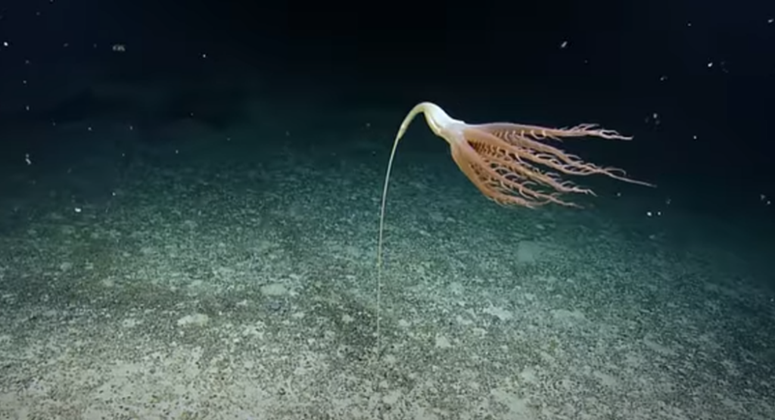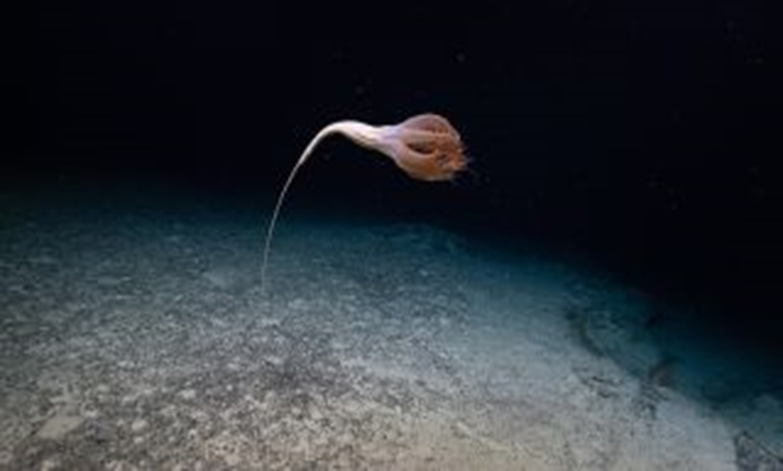An expedition that monitors a rare and strange sea creature

New footage showing a giant, strange-looking sea creature floating quietly in the Pacific Ocean has left researchers wondering if what they're seeing is a new species.
A team of scientists spotted the strange animal while aboard the E/V Nautilus, a research vessel used by the Ocean Exploration Trust, a non-profit organization that conducts deep-sea research, in a recently released video.
The expedition researchers snapped and looked as images of the strange creature came into focus. One of the scientists on board could be heard saying "off camera," while the boat's remotely operated vehicle (ROV) scanned the ocean floor and got a little closer to the scene. the stranger, Another scientist quipped, "I'm not on the edge of my seat or nothing."

The creature was spotted 9,823 feet (2,994 meters) below the surface near a previously undiscovered seamount north of Johnston Atoll, an unincorporated US territory and national wildlife refuge in the Pacific Ocean west of Hawaii.
The researchers initially suspected that they crossed paths with Solumbellula monocephalus, also known as the Solumbellula sea pen, which is part of the phylum Cnidaria that includes jellyfish, hydras, and corals. However, the only known sightings of sea pens before that occurred in the Atlantic and Indian oceans, so it's likely It is possible that scientists have found a new species
The expedition's principal investigator, deep-sea biologist and postdoctoral researcher at Boston University, Steve Uskavitch, described the sighting as "remarkable."
"From time to time we come across something we never expected to see, and these observations are often more powerful," Steve Uskavitch told Live Science.

He added, "We were nearing the end of our cruise and were at the bottom of the sea when we noticed the 'sea pen' that we captured in the video was huge, maybe the same size or bigger than Hercules."
Uskavitch sought input from biologists on the beach, who helped confirm his suspicions that it was a sea penguin, or a relative of coral reefs, based on the animal's impressive size. Sea pens reach maturity at five or six years of age, and can live for more than a decade.
"Prior to this, Solumbellula monocephalus had never been seen in the central Pacific and never collected," Oskavitch said.
Interestingly, his team's discovery came several months after scientists in Spain named two new sea pen embryos: Pseudumbellula. and Solumbellula, the latter of which will include the new species.
More research needs to be done, Uskavitch said, to determine if this is the first Solumbellula monocephalus in the Pacific Ocean or is likely a new species in the ocean basin.
Source: Live Science

